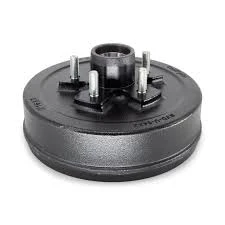
-
 Afrikaans
Afrikaans -
 Albanian
Albanian -
 Amharic
Amharic -
 Arabic
Arabic -
 Armenian
Armenian -
 Azerbaijani
Azerbaijani -
 Basque
Basque -
 Belarusian
Belarusian -
 Bengali
Bengali -
 Bosnian
Bosnian -
 Bulgarian
Bulgarian -
 Catalan
Catalan -
 Cebuano
Cebuano -
 Corsican
Corsican -
 Croatian
Croatian -
 Czech
Czech -
 Danish
Danish -
 Dutch
Dutch -
 English
English -
 Esperanto
Esperanto -
 Estonian
Estonian -
 Finnish
Finnish -
 French
French -
 Frisian
Frisian -
 Galician
Galician -
 Georgian
Georgian -
 German
German -
 Greek
Greek -
 Gujarati
Gujarati -
 Haitian Creole
Haitian Creole -
 hausa
hausa -
 hawaiian
hawaiian -
 Hebrew
Hebrew -
 Hindi
Hindi -
 Miao
Miao -
 Hungarian
Hungarian -
 Icelandic
Icelandic -
 igbo
igbo -
 Indonesian
Indonesian -
 irish
irish -
 Italian
Italian -
 Japanese
Japanese -
 Javanese
Javanese -
 Kannada
Kannada -
 kazakh
kazakh -
 Khmer
Khmer -
 Rwandese
Rwandese -
 Korean
Korean -
 Kurdish
Kurdish -
 Kyrgyz
Kyrgyz -
 Lao
Lao -
 Latin
Latin -
 Latvian
Latvian -
 Lithuanian
Lithuanian -
 Luxembourgish
Luxembourgish -
 Macedonian
Macedonian -
 Malgashi
Malgashi -
 Malay
Malay -
 Malayalam
Malayalam -
 Maltese
Maltese -
 Maori
Maori -
 Marathi
Marathi -
 Mongolian
Mongolian -
 Myanmar
Myanmar -
 Nepali
Nepali -
 Norwegian
Norwegian -
 Norwegian
Norwegian -
 Occitan
Occitan -
 Pashto
Pashto -
 Persian
Persian -
 Polish
Polish -
 Portuguese
Portuguese -
 Punjabi
Punjabi -
 Romanian
Romanian -
 Russian
Russian -
 Samoan
Samoan -
 Scottish Gaelic
Scottish Gaelic -
 Serbian
Serbian -
 Sesotho
Sesotho -
 Shona
Shona -
 Sindhi
Sindhi -
 Sinhala
Sinhala -
 Slovak
Slovak -
 Slovenian
Slovenian -
 Somali
Somali -
 Spanish
Spanish -
 Sundanese
Sundanese -
 Swahili
Swahili -
 Swedish
Swedish -
 Tagalog
Tagalog -
 Tajik
Tajik -
 Tamil
Tamil -
 Tatar
Tatar -
 Telugu
Telugu -
 Thai
Thai -
 Turkish
Turkish -
 Turkmen
Turkmen -
 Ukrainian
Ukrainian -
 Urdu
Urdu -
 Uighur
Uighur -
 Uzbek
Uzbek -
 Vietnamese
Vietnamese -
 Welsh
Welsh -
 Bantu
Bantu -
 Yiddish
Yiddish -
 Yoruba
Yoruba -
 Zulu
Zulu
Are Drum Brakes Less Reliable Compared to Modern Brake Systems?
Are Drum Brakes Bad? Understanding Their Pros and Cons
When it comes to vehicle braking systems, most people are familiar with disc brakes, but drum brakes are still prevalent in many vehicles, especially in older models and lighter cars. As automotive technology advances, the debate between the effectiveness and safety of drum brakes versus disc brakes continues. So, are drum brakes bad? Let’s take a closer look at the pros and cons of drum brakes and see how they compare.
What Are Drum Brakes?
Drum brakes consist of a hollow drum that rotates with the wheel. Inside this drum, there are brake shoes that press against the inner surface to create friction and slow down the vehicle. This design was common in older vehicles and is still found in many affordable cars, particularly in the rear wheels.
Pros of Drum Brakes
1. Cost-Effective One of the primary advantages of drum brakes is their lower production and replacement costs. They are generally cheaper for manufacturers to produce, which can lead to lower vehicle costs. Additionally, they require less frequent replacement compared to some disc brake systems.
2. Effective at Low Speeds Drum brakes provide effective stopping power at low speeds, which makes them ideal for light-duty applications and less demanding vehicles, such as subcompact cars. They can also handle lighter loads without much fuss.
3. Self-Boosting Mechanism One interesting feature of drum brakes is their self-energizing capability. When braking occurs, the rotation of the drum pushes the brake shoes against the drum, enhancing the braking force. This mechanism can make them feel quite powerful when they are used appropriately.
are drum brakes bad

Cons of Drum Brakes
1. Heat Dissipation Issues One of the significant drawbacks of drum brakes is their effectiveness in dissipating heat. When subjected to heavy braking, they can overheat and lose efficiency—a phenomenon known as brake fade. This can be particularly dangerous in situations like steep downhill driving or heavy stop-and-go traffic.
2. Complexity in Design The design of drum brakes is more complex than that of disc brakes. This can lead to more significant maintenance requirements. The internal components can wear unevenly and may need adjustment over time, causing a decline in performance.
3. Less Responsive While drum brakes are effective at lower speeds, they tend to become less responsive at higher speeds compared to disc brakes. This can result in longer stopping distances, which is a critical safety consideration for drivers.
4. Weight Drum brakes are generally heavier than disc brakes, which can impact the overall weight of a vehicle and reduce fuel efficiency.
Conclusion
So, are drum brakes bad? The answer is not a straightforward yes or no. While they have specific advantages, particularly with cost-effectiveness and low-speed performance, they also have drawbacks that can impact safety and performance. For everyday city driving and lighter vehicles, drum brakes may still be suitable. However, for high-performance vehicles or those that frequently encounter heavy braking, disc brakes tend to be a superior choice.
Ultimately, whether drum brakes are ‘bad’ depends on the specific needs and use cases of the vehicle in question. As automotive technology continues to evolve, it's essential for consumers to weigh the options carefully based on performance, maintenance, and safety needs when selecting a vehicle. When considering a vehicle purchase, it's wise to inquire about the type of braking system it employs and how that aligns with your driving habits.
-
What Are Drum BrakesNewsJul.07,2025
-
Understanding Brake Drum MaterialNewsJul.07,2025
-
Semi-Trailer Brake Drum: A Key Component for Extreme Loads and Long-Distance TransportNewsJul.07,2025
-
Drum Brake Pads for SaleNewsJul.07,2025
-
Brake Drums for SaleNewsJul.07,2025
-
Brake Drum ManufacturerNewsJul.07,2025
-
Aluminum Brake Drums: The Future of High-Performance CarsNewsJul.07,2025
